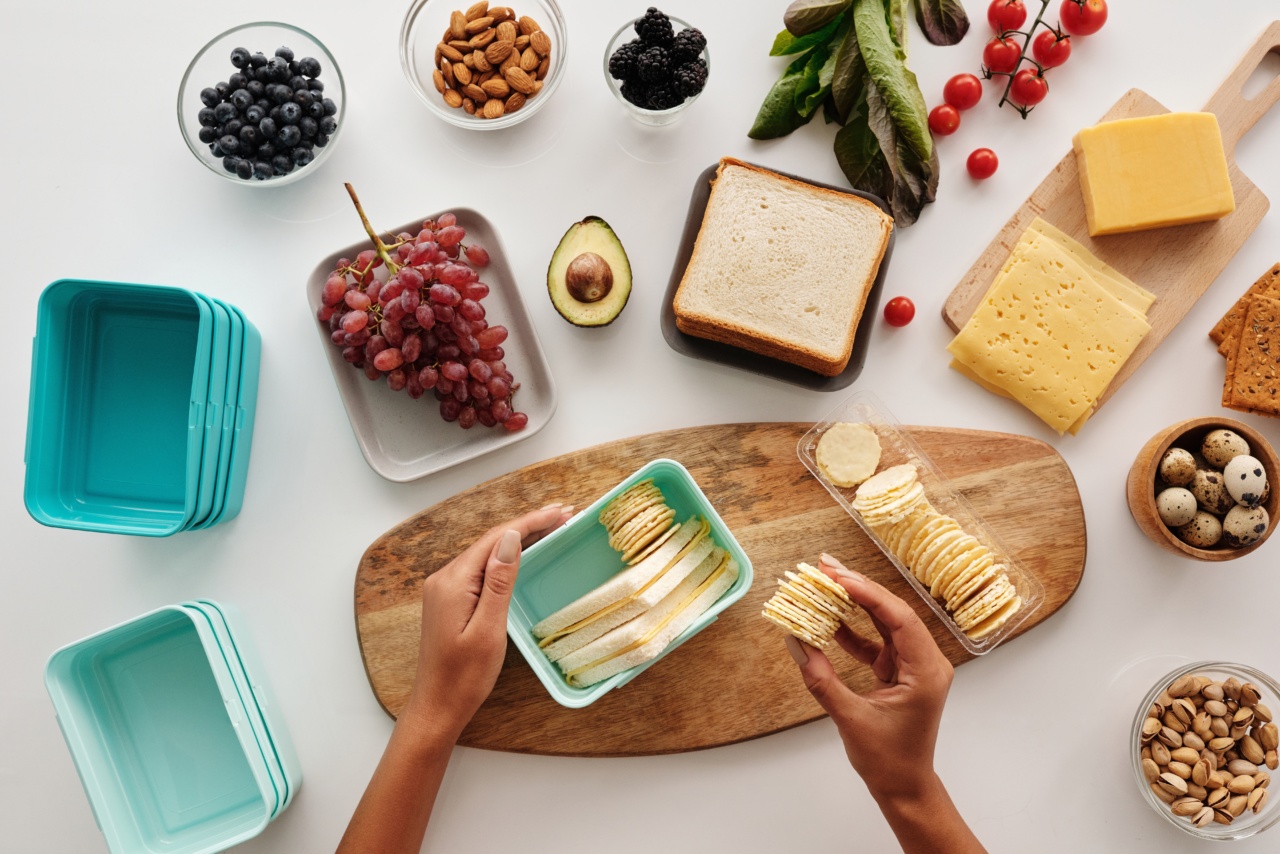When it comes to sticking to a healthy diet, we are often advised to eat more fruits, vegetables, whole grains, lean proteins, and healthy fats. However, there are certain healthy foods that can actually derail our diet and hinder weight loss efforts.
In this article, we will discuss some of these seemingly healthy foods that can sabotage your diet and explain why you should limit your intake of them.
Nuts and Seeds
Although nuts and seeds are packed with nutrients, they are also high in calories and fat.
A handful of nuts or seeds can provide you with a good source of protein, fiber, and healthy fats, but it can also add hundreds of calories to your daily intake if you aren’t careful. Eating too many nuts and seeds can lead to weight gain and hinder your weight loss goals.
Fruit Juice
Fruit juice is often marketed as a healthy beverage, but it can be loaded with sugar and calories. Even 100% natural fruit juice can be high in sugar, which can lead to insulin resistance and weight gain.
If you want to indulge in some fruit juice, make sure to read the label and choose a low-sugar option. Better yet, skip the juice altogether and opt for whole fruits instead.
Granola Bars
Granola bars are often marketed as a healthy snack, but many of them are high in sugar and preservatives. If you want to indulge in a granola bar, choose one that is low in sugar and high in protein, fiber, and healthy fats.
However, it’s better to stick to whole foods like nuts, seeds, and fresh fruits if you want a healthy snack that won’t derail your diet.
Smoothies
Smoothies can be a quick and convenient way to get a lot of nutrients in one drink, but they can also be high in calories and sugar.
Many store-bought smoothies are loaded with sugary syrups, fruit juice, and even ice cream, which can lead to weight gain if consumed regularly. If you want to enjoy a smoothie, consider making one at home with whole fruits, Greek yogurt, and unsweetened almond milk.
Salad Dressings
Salads are often touted as a healthy meal choice, but the dressings can be high in calories, sugar, and unhealthy fats. It’s easy to ruin a healthy salad by drowning it in creamy dressings, which can add hundreds of calories to your meal.
To keep your salad healthy, choose dressings that are low in calories and made with healthy fats, such as olive oil and vinegar. You can also make your own dressings at home using simple ingredients like olive oil, lemon juice, and herbs.
Veggie Chips
Veggie chips are often marketed as a healthier alternative to potato chips, but many of them are high in sodium and calories.
While they may have some nutrients like fiber and antioxidants, the high sodium content can lead to bloating and water retention. If you want to indulge in some chips, consider making your own using kale or sweet potatoes, which are lower in calories and higher in nutrients.
Dried Fruit
Dried fruit is a convenient snack that can be added to trail mixes, granola bars, and oatmeal to add flavor and texture.
However, it’s important to note that dried fruit is higher in calories and sugar than fresh fruit, as the water content has been removed. This means that a small handful of dried fruit can contain the same amount of calories as a full serving of fresh fruit.
If you want to include dried fruit in your diet, make sure to keep your portions small and pair it with some protein or healthy fat to balance out the sugar.
Rice Cakes
Rice cakes are often marketed as a low-calorie and filling snack, but they can be high in sodium and lacking in nutrients. Many rice cakes are made with refined grains, which can cause blood sugar spikes and leave you feeling hungry soon after.
If you want a healthy and filling snack, opt for whole foods like fruits, vegetables, and nuts instead of processed snacks like rice cakes.
Soy Products
Soy products like tofu, tempeh, and soy milk are often marketed as healthy alternatives to meat and dairy, but they can also be high in calories and sodium. Many soy products are also processed and contain additives that can be harmful to your health.
If you want to include soy in your diet, choose organic and non-GMO options and limit your intake to avoid overconsumption of soy protein and phytoestrogens.
Canned Foods
Canned foods like canned fruits, vegetables, and beans are convenient and budget-friendly options, but they can be high in sodium and preservatives.
Many canned foods are also packed in sugary syrups or sodium-heavy sauces, which can add calories and harm your health. If you want to include canned foods in your diet, choose low-sodium options and rinse them well before consuming to remove any excess salt or preservatives.
Conclusion
While these foods may seem healthy on the surface, they can actually derail your diet and harm your health if consumed in excess.
By being mindful of your food choices and reading labels carefully, you can enjoy these foods in moderation without compromising your health and weight loss goals. Remember that a healthy diet is all about balance and variety, so make sure to include a wide range of whole, unprocessed foods in your meals to ensure optimal health and wellbeing.
























